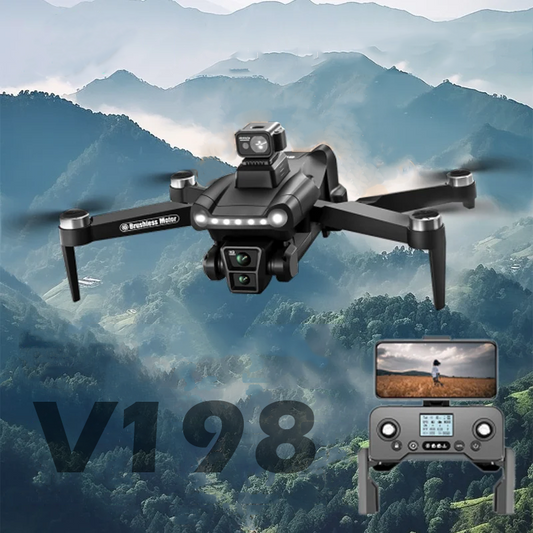A Guide to Drones in Gorilla Habituation

In recent years, the use of drones has revolutionised various fields, and one area where they have made a significant impact is in wildlife conservation. Gorilla habituation, a crucial aspect of primate research and conservation, has seen remarkable advancements with the integration of drone technology. In this comprehensive guide, we will explore the role of drones in gorilla habituation, shedding light on the benefits, challenges, and ethical considerations associated with this groundbreaking approach.
Understanding Gorilla Habituation:

Gorilla habituation refers to the process of acclimating wild gorillas to the presence of humans. This meticulous process allows researchers and conservationists to observe and study these magnificent creatures in their natural habitat. The ultimate goal is to habituate gorillas to the point where they can be observed without altering their natural behaviour, providing valuable insights into their social structures, behaviours, and overall well-being.
Benefits of Using Drones in Gorilla Habituation:

1.Minimising Disturbance:
Drones play a pivotal role in minimising disturbance to gorilla habitats. Traditional methods of habituation often involve physically entering the gorilla's territory, which can be stressful for the animals and may lead to undesirable behavioural changes. Drones offer a non-intrusive alternative, allowing researchers to observe and monitor gorillas from a safe distance.
2.Efficient Surveillance:
The aerial perspective provided by drones enables researchers to efficiently monitor gorilla groups over large and challenging terrains. Drones equipped with high-resolution cameras can capture detailed images and videos, aiding in the identification of individual gorillas, tracking group dynamics, and assessing overall health.
3.Data Collection and Analysis:
Drones facilitate the collection of valuable data for research purposes. From assessing habitat quality to monitoring feeding behaviours, drones equipped with specialised sensors provide researchers with a wealth of information. This data is instrumental in making informed conservation decisions and developing effective strategies for gorilla protection.
Challenges in Implementing Drone Technology for Gorilla Habituation:
1.Weather Conditions:
The unpredictable nature of weather in gorilla habitats poses a challenge for drone operations. Rain, fog, and strong winds can limit the usability of drones, affecting their ability to capture clear and accurate data. Researchers must carefully plan their drone operations to account for weather variations.
2.Limited Flight Time:
While drone technology has advanced significantly, the limited flight time of most drones remains a constraint. Researchers must plan their missions strategically to maximize the use of drones within the available battery life. This limitation necessitates careful consideration of flight paths and mission objectives.
3.Ethical Considerations:
The use of drones in wildlife research raises ethical considerations, especially concerning the potential disturbance caused by drone noise. Researchers must balance the benefits of using drones with the need to minimize any negative impact on gorillas and their habitats. Implementing strict ethical guidelines is crucial to ensure responsible drone usage.
Ethical Considerations in Drone-Assisted Gorilla Habituation:

1.Noise Management:
One of the primary ethical concerns is the noise generated by drones. To mitigate this, researchers use specialized drones designed to operate quietly. Additionally, flight altitudes and distances are carefully calibrated to minimize disturbance to gorilla groups.
2.Respecting Privacy and Natural Behavior:
Researchers must prioritize the respect for gorillas' privacy and natural behavior. Drones are programmed to maintain a safe distance, ensuring that the observations do not interfere with the animals' daily activities. This approach preserves the integrity of the habituation process.
3.Community Engagement:
Involving local communities in the drone-assisted habituation process is crucial for ethical considerations. Educating local residents about the benefits of gorilla habituation and the role of drones in conservation fosters understanding and support, creating a collaborative approach towards wildlife protection.
Conclusion:
The integration of drone technology in gorilla habituation represents a groundbreaking leap forward in wildlife research and conservation. By minimising disturbance, enhancing surveillance, and facilitating efficient data collection, drones are invaluable tools for understanding and protecting these endangered primates. However, the challenges and ethical considerations associated with drone usage underscore the importance of responsible and thoughtful implementation.
As technology continues to evolve, the synergy between drones and gorilla habituation will likely yield even more profound insights into the lives of these remarkable creatures. Through careful planning, ethical considerations, and community engagement, researchers can harness the power of drones to ensure the long-term conservation of gorillas and their habitats. The journey towards a deeper understanding of gorilla behaviour and the preservation of their natural environment is illuminated by the transformative potential of drone technology.
Explore a variety of drones at our online drone store.
Happy Flying!









